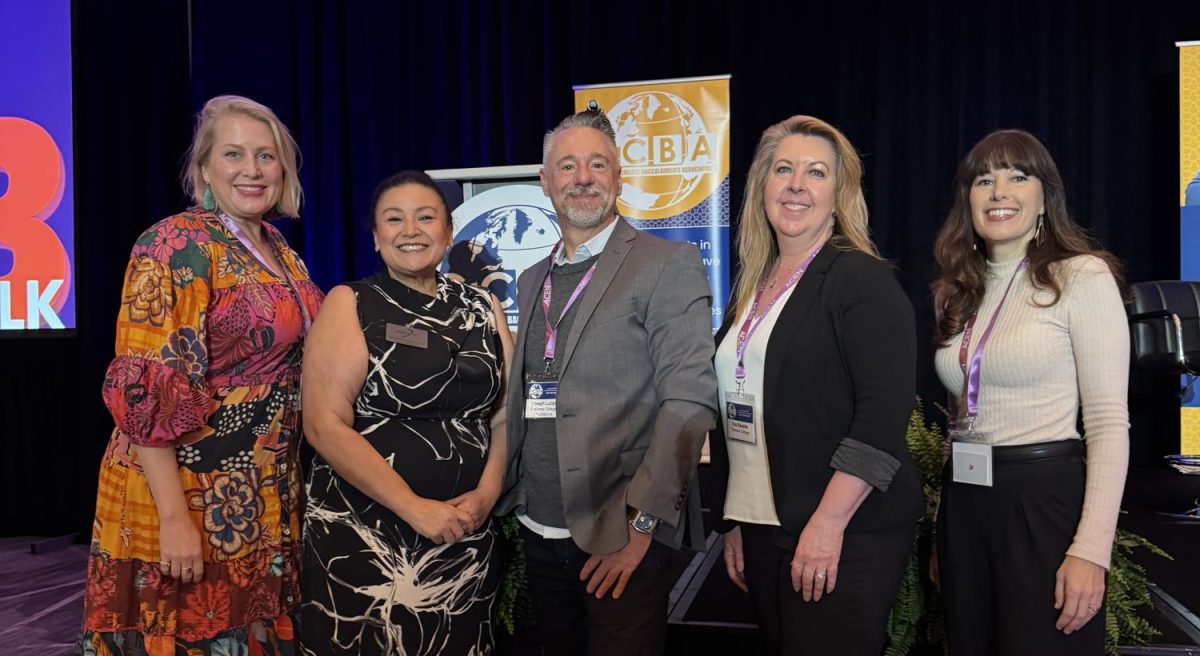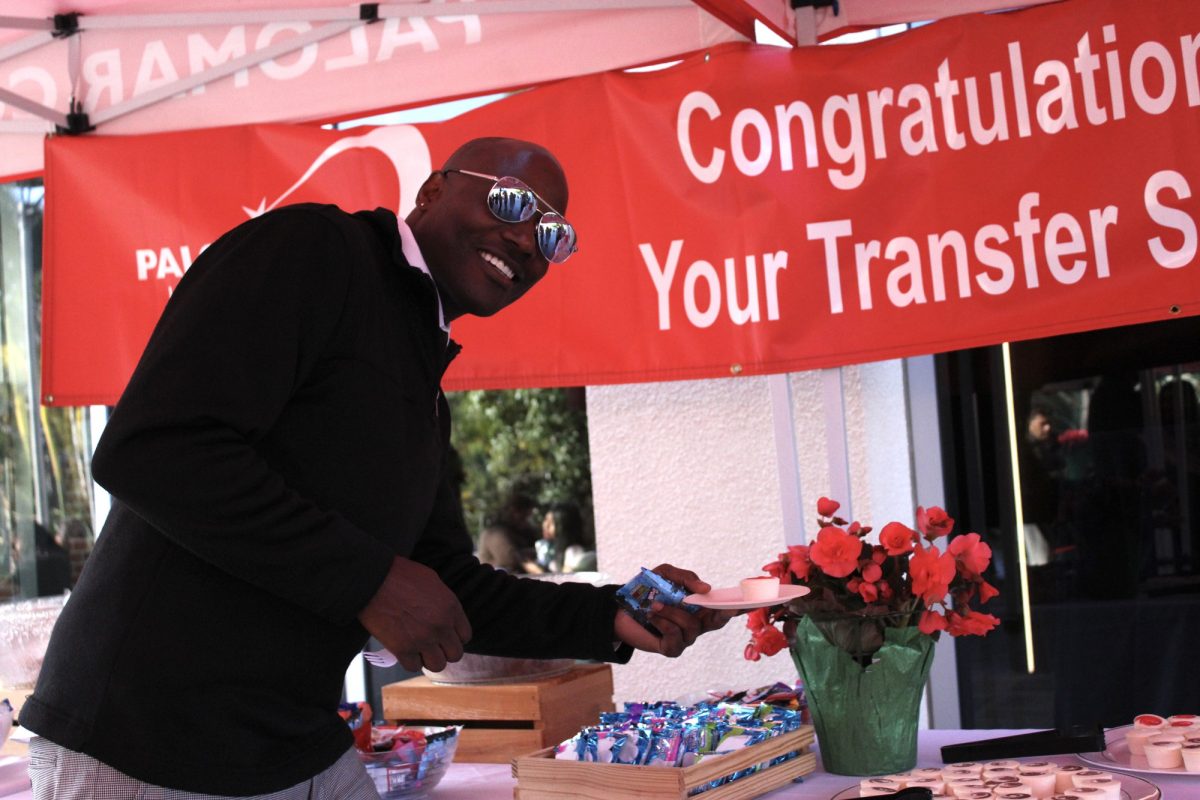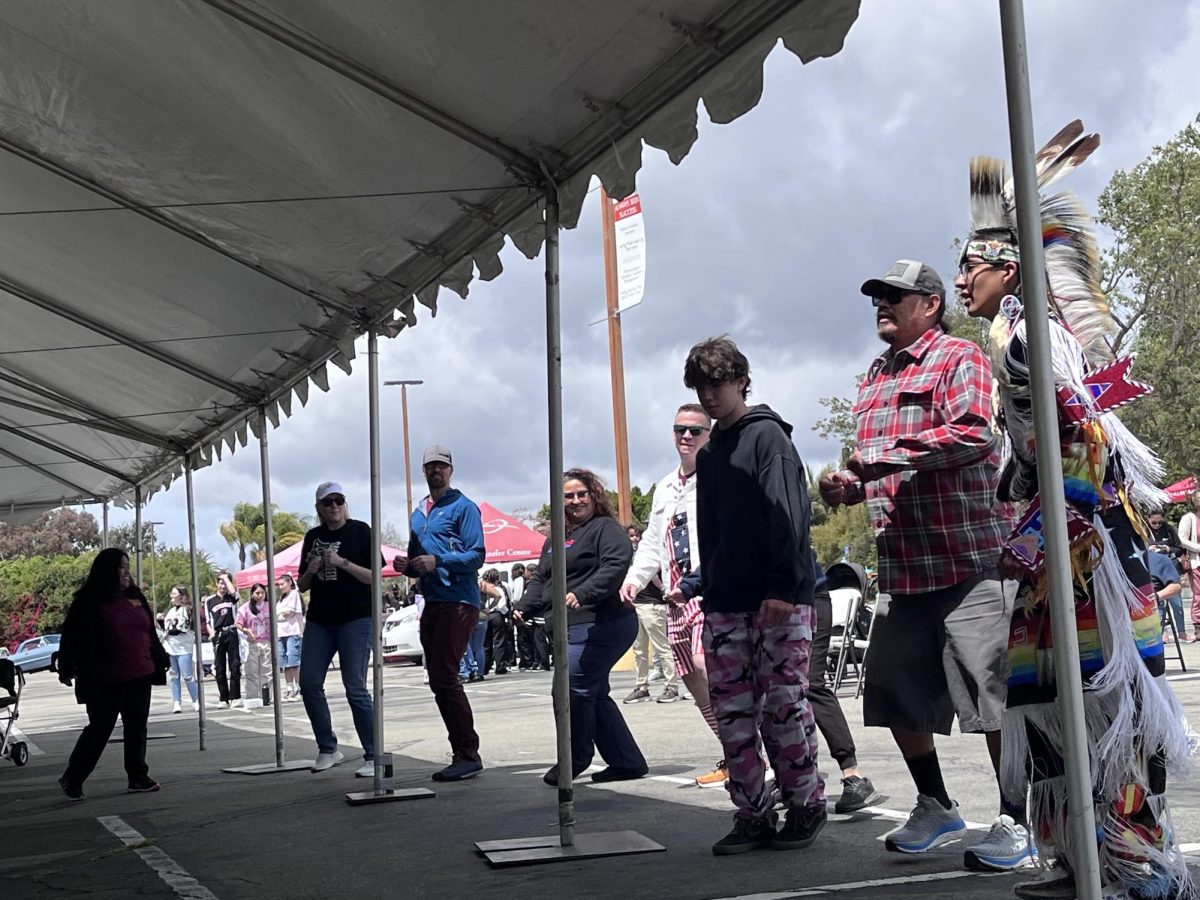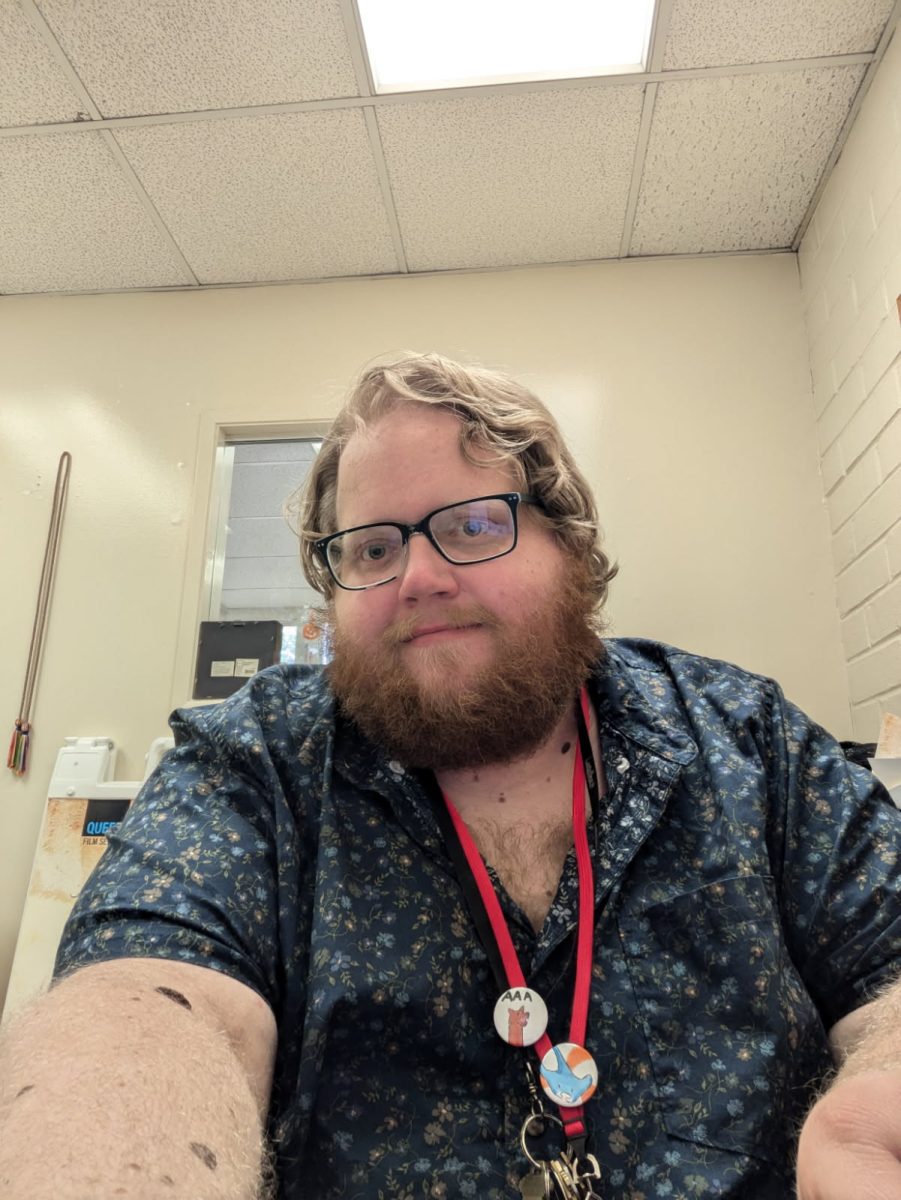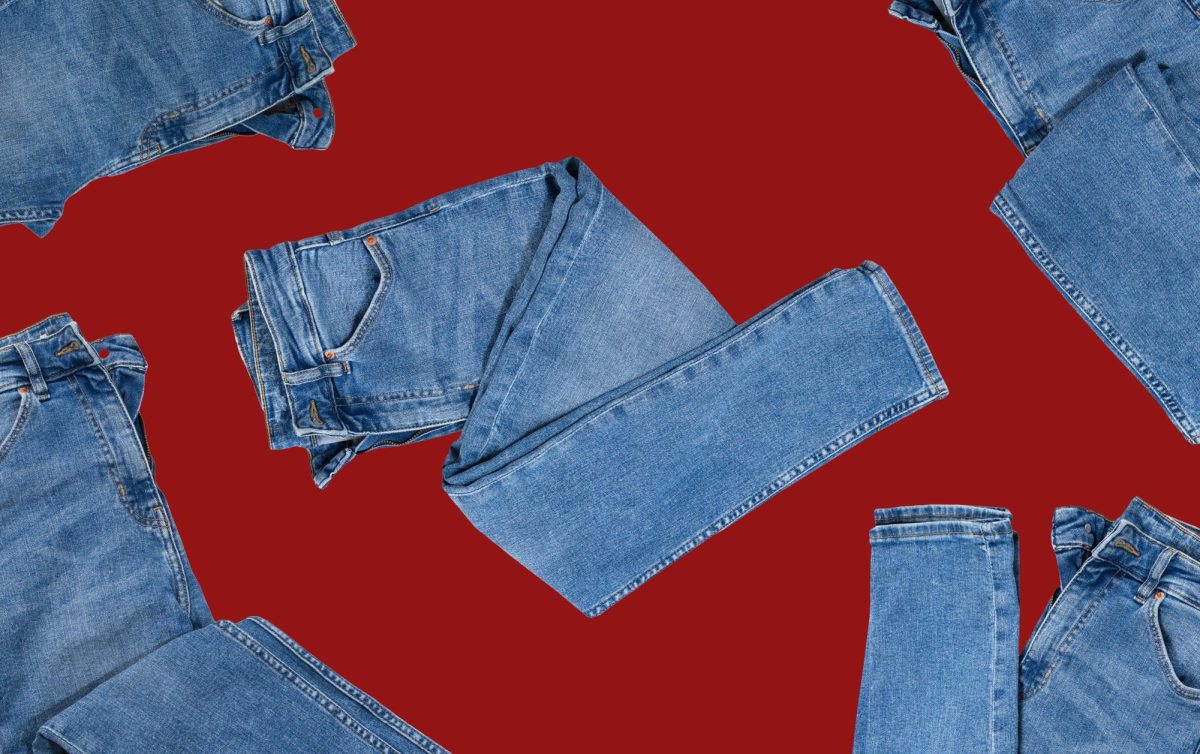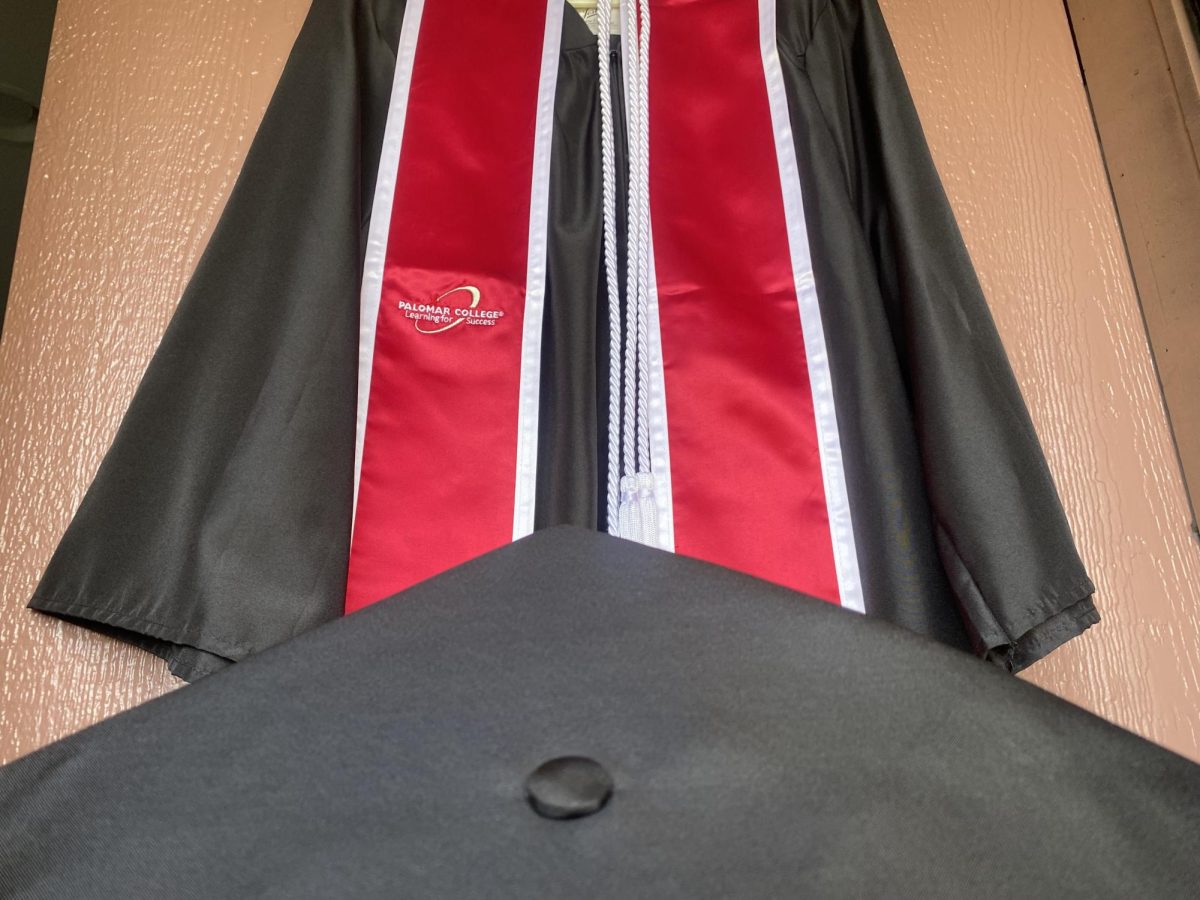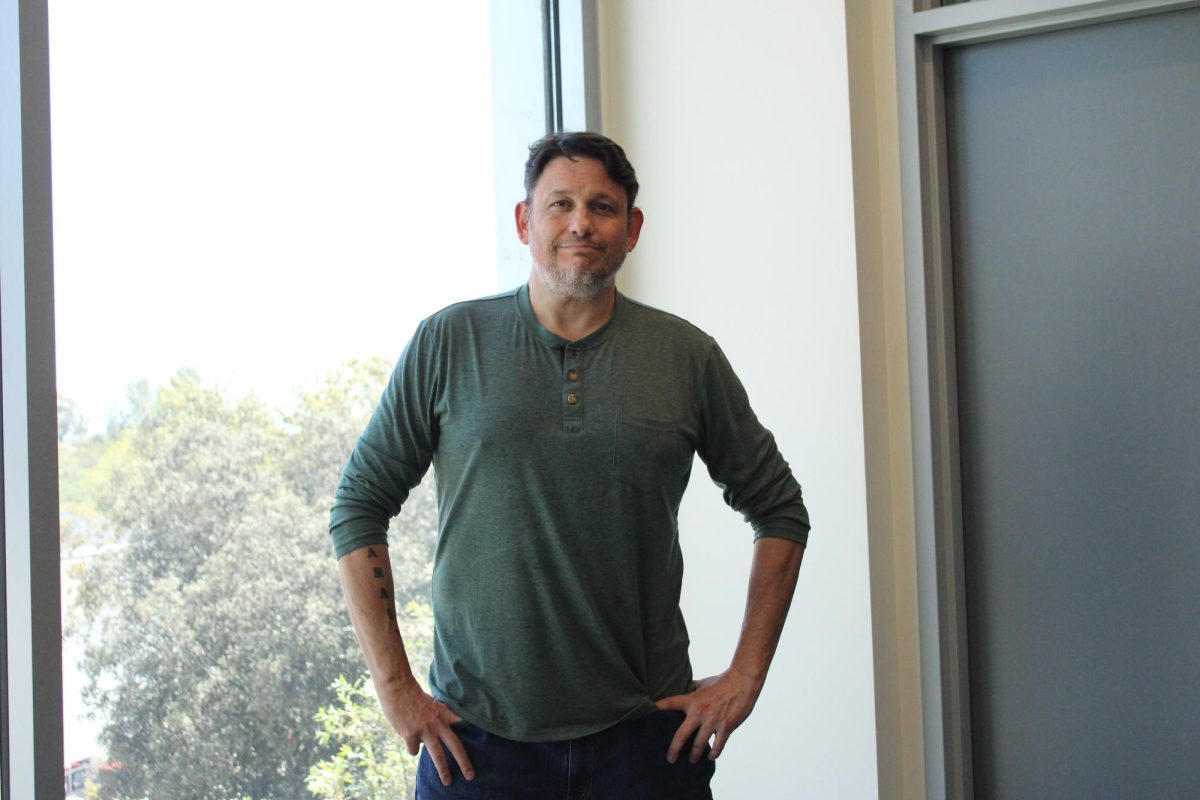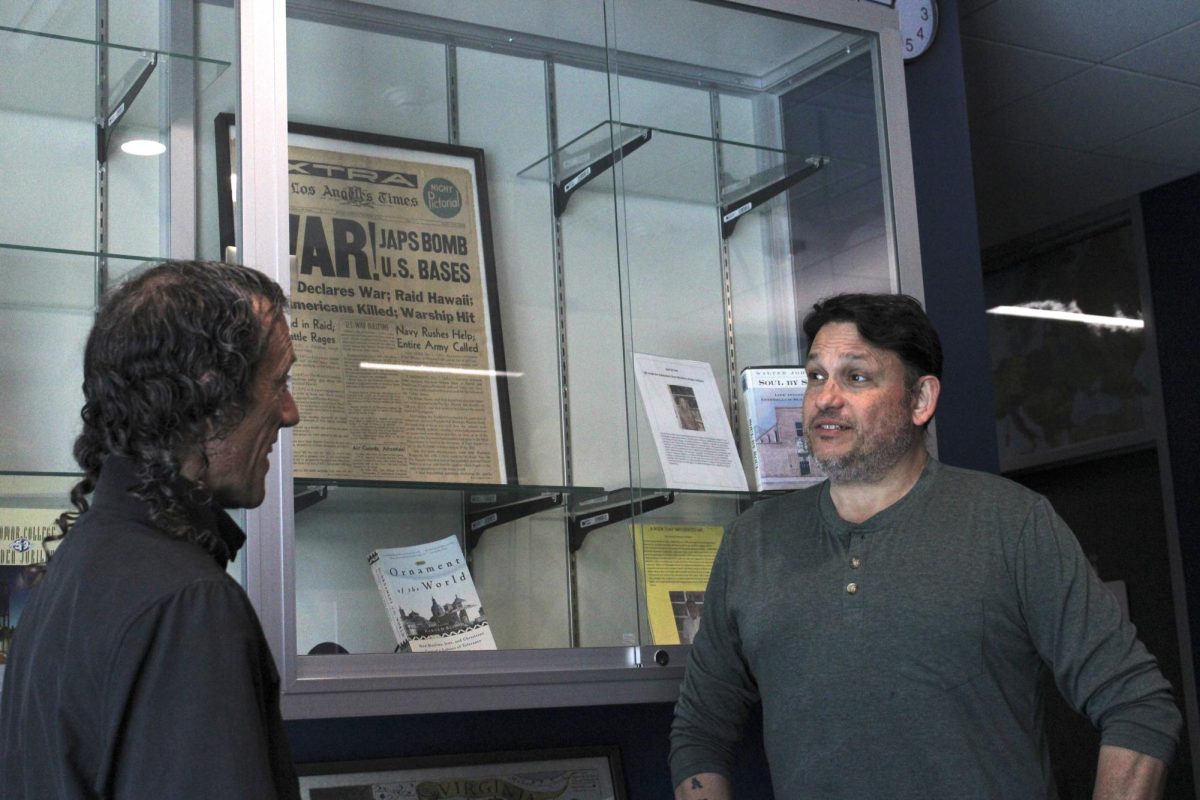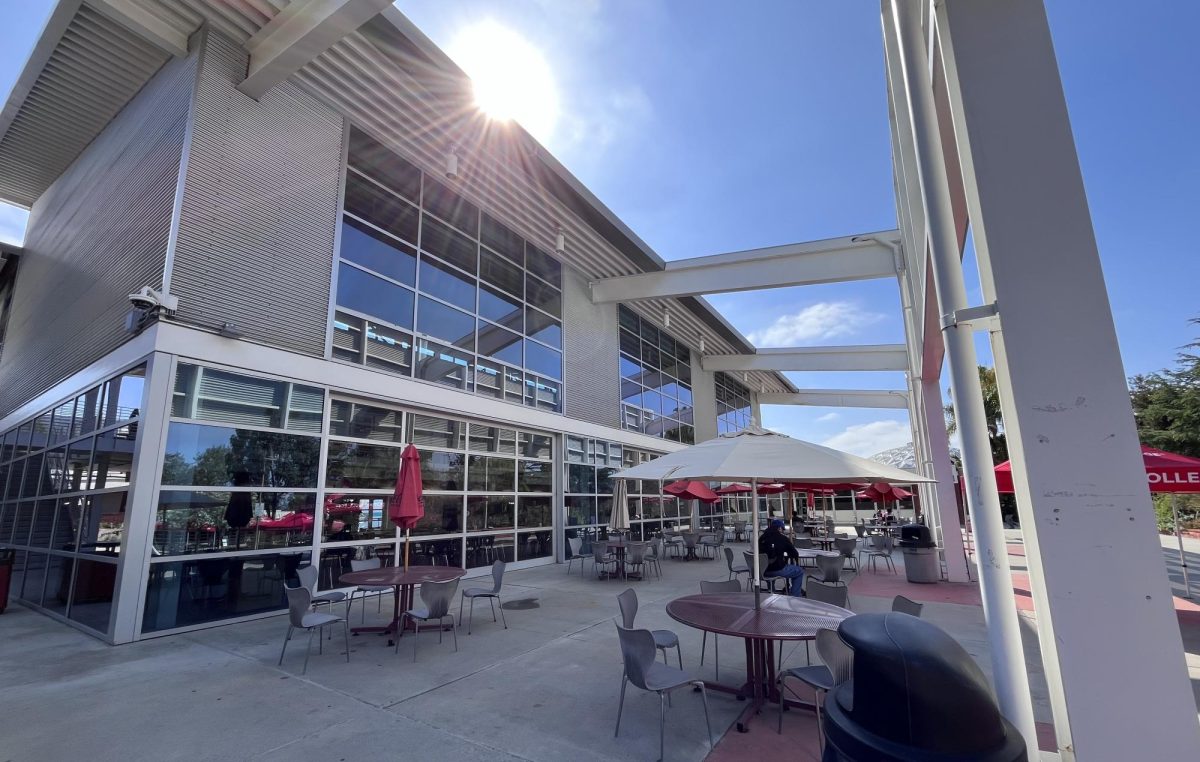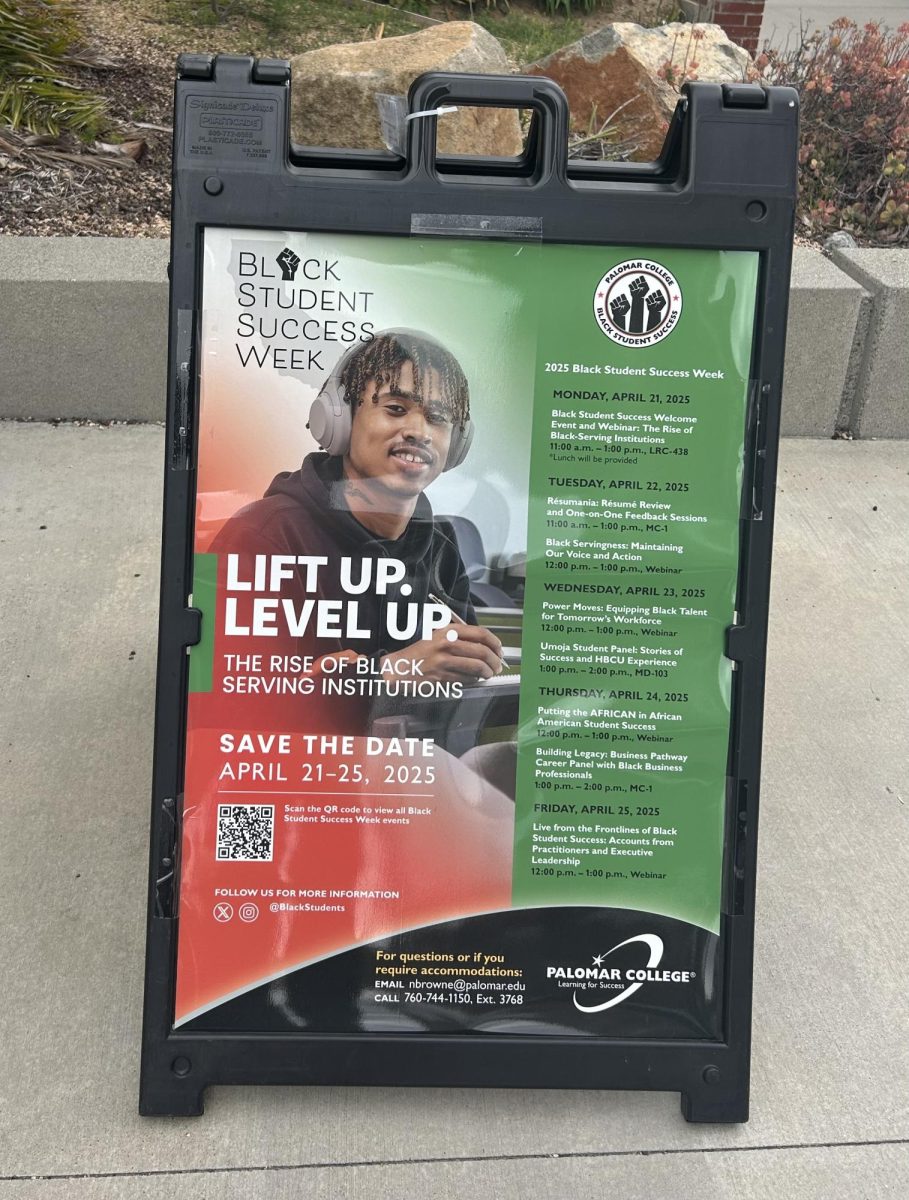It’s all about the recipe. Turn the nature-oven on and add food, water and air.
The ingredients were laid out during a composting event that hosted Kevin McLin from San Pasqual Valley Soils Oct. 11 at Palomar College.
Compost is defined by McLin as, “the soil-like material produced by decomposing organic discards such as yard trimmings, food scraps and manure.”
McLin discussed the benefits of using compost, how to make your own compost at home and application. Throughout the event he was open to spontaneous questions from the audience.
The lecture was “really easy to understand,” said Nathan Hunt, who is studying hydrology at Palomar. Hunt added that he is interested in studying water problems in the world.
Compost-enhanced soil retains water better than the sandy, native soils around the Southern California region, according to McLin. This allows people to water their plants less and conserve more.
“Compost helps retains nutrients in the soil, helps prevent fertilizers and potential toxins such as pesticides from running off into our water,” McLin added.
Before attending the lecture Hunt said he had no knowledge about how to start the composting process. He said he learned everything he needed to start his own compost at home.
The best size for a compost bin at home is 3 feet wide, 3 feet tall and 3 feet deep, according to McLin. Food scraps, grass, leaves and manure can be added to the bin. It is important to balance the nitrogen and carbon items as they each serve a fundamental purpose in the success of the compost.
McLin said it takes between 90 and 120 days to have usable compost.
“Make sure to turn your pile,” he added.
Another benefit of producing compost at home is saving money. McLin said people pay his business to take their yard trimmings, then he makes compost with it and resells it to people to use in their gardens.
“You are throwing dollars away,” McLin said.
McLin was invited as a guest speaker by the Friends of the Arboretum. Part of its mission statement is, “we believe that arboretums and gardens enrich our surroundings and enhance our love of nature.”
Hunt is taking a botany class and received extra credit for attending although he said he would have came anyway because it is something he wants to do.


